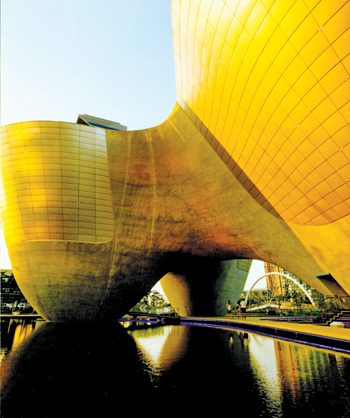
South Korea is doing its best to ramp up business tourist arrivals and the hope is that Hallyu (Korean pop culture) and Hansik (local food) will lend a helping hand.
Korea Tourism Organisation (KTO) believes Korean culture is winning friends and influencing people, particularly in China and Japan. Earlier this year, a large group of incentive travellers from China’s Aolan International Beauty visited the filming site of SBS TV's 'My Love from the Star,' a wildly successful Korean drama that featured television icons Kim Soo Hyun and Jun Ji Hyun. The comedy dwells around the romance of an actress and her boyfriend, an alien.
Enthusiasm for Korean culture is intensifying. When a party of journalists visited Korea, KTO officials made sure Incheon’s café Dal.Komm Coffee was included in the itinerary. Melanie Adan, KTO’s Mice (meetings, incentives, conferences and exhibitions) marketing manager, reverentially recalled that 'Descendants of the Sun,' was filmed on the café’s premises. The TV series is a love story between a Special Forces commander and a female surgeon. Local Mice officials had special reasons to be happy. The series provided millions of dollars’ worth of publicity to Korean medical capabilities. It spurred the already burgeoning medical tourism industry.
Not wanting the visiting media team to miss out on Korea’s cultural side, KTO took them to a performance of Bipap in Incheon’s business district. The drama’s speciality is that it is non-verbal, yet succeeds enormously in drawing laughs and applause for its interplay of martial arts, cooking, dancing and acrobatics without any conversation taking place. The storyline is about groups of people showing off their cooking skills but in so doing they rake up a rumpus that the audience loves.
 |
|
Tribowl, an Incheon architectural landmark which has exhibition and conference spaces |
An intrinsic aspect of Korean culture is its food, and Korea is sparing no efforts to popularise it among foreigners. KTO has set up a facility in Seoul’s Interactive Cultural Centre to help tourists comprehend what makes local cuisine tick. There’s probably no better place than that to have a preliminary acquaintance with such Korean delights as Kongguksu (a cold noodle dish with soy bean broth), Gejang (marinated crabs in soy sauce) and Bulgogi, (marinated shredded beef cooked on a grill).
A guide gave an overview of the story of Korean food from cultivation and storage to the end product. The facility runs cookery classes under an experienced chef and has literature on Korean cuisine including some contributed by European admirers.
Athletes, officials and spectators attending the Winter Olympics in Pyeongchang, Gangwon province, in 2018 will have ample opportunity to sample Korean pop and drama. Even in normal times, resorts in the scenic, mountainous countryside around Pyeongchang hold a variety of cultural events. During the Olympics there will be a marked scale-up in the shows. It is also certain that athletes and officials will be treated to Korean cuisine. It may be recalled that during the 1988 Seoul summer Olympics, many thousands of sportsmen and officials got their first taste of Korean culinary offerings, making kimchi, the dish of seasoned vegetables, absolutely well known.
KTO sees the Olympics as not merely a sporting event but a Mice opportunity. 'Pyeongchang 2018 is a mega sporting event that can give Gangwon the opportunity to become a popular Mice site in Asia,' observed Songjae Lim, manager, international media relations. 'Positive impacts of Pyeongchang 2018 include an increase and upgrade of hotel facilities, tour sites, and convention centres. It will be a great (chance) for the province to acquire and upgrade Mice-related hardware.'
Added Lim: 'Gangwon province can provide something Seoul or any other hub city cannot offer to the Mice market.' He cited the province’s unique natural attractions and 'the big plus' of having a high-speed railway built from Wonju, 90 km southeast of Seoul, to Gangneung via Pyeongchang.
Currently, the Olympic area is a 150-minute drive from the capital, not lengthy enough to deter tired and hardworking Seoul citizens from holidaying in the salubrious climate of villages around Pyeongchang. The new railway line will work wonders for general tourism and the Mice market.
Organisers of the winter games are guaranteeing 21,500 rooms, comprising 650 of five-star class, 7,500 of four-star, and 13,000 of three-star rating. One of the prominent hotels in the area is Seamarq, where upmarket scents retailer Jo Malone London held an event recently.
When the winter Olympics gets going, KTO will have much to be pleased. Not that there is no reason for satisfaction over its other Mice sites – Seoul and nearby Incheon, for example.
Rachel Seo, a KTO Mice official, addressing the touring journalists, had much to say of Incheon’s natural, cultural and business high points – including the extensive Songdo Convensia facility and the architecturally vibrant Tribowl with inbuilt conference and exhibition spaces.
It was the same with Stewart Ho, a Mice planner for Seoul, as he spoke passionately about a whole range of facilities that make the capital a magnet for common and Mice tourists – the Coex exhibitions and conferences complex and the floating islands, among other attractions.
By Salvador Almeida
